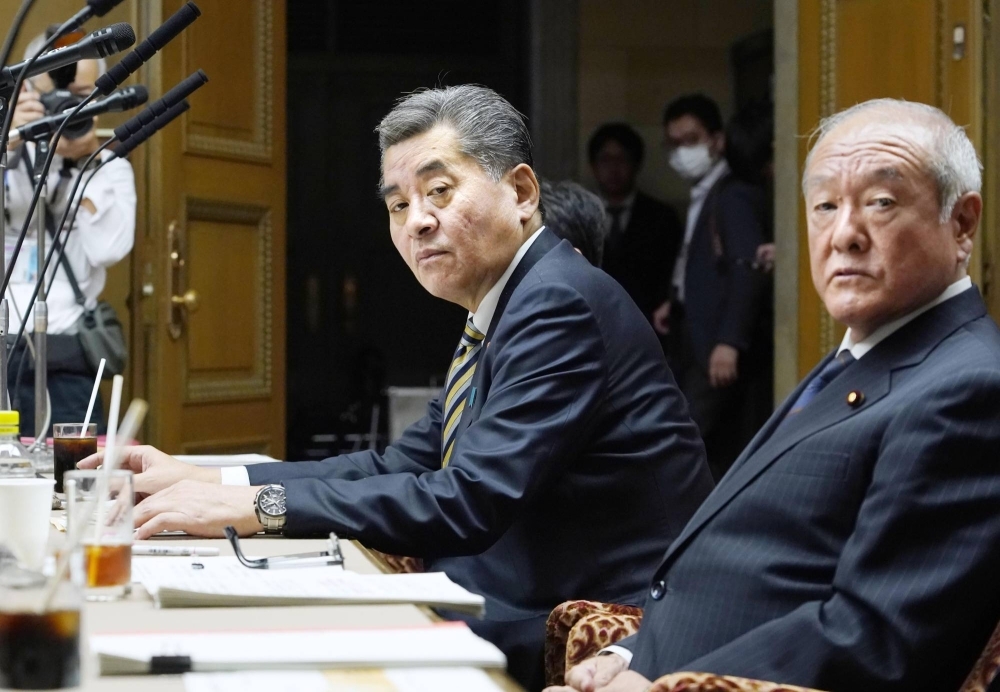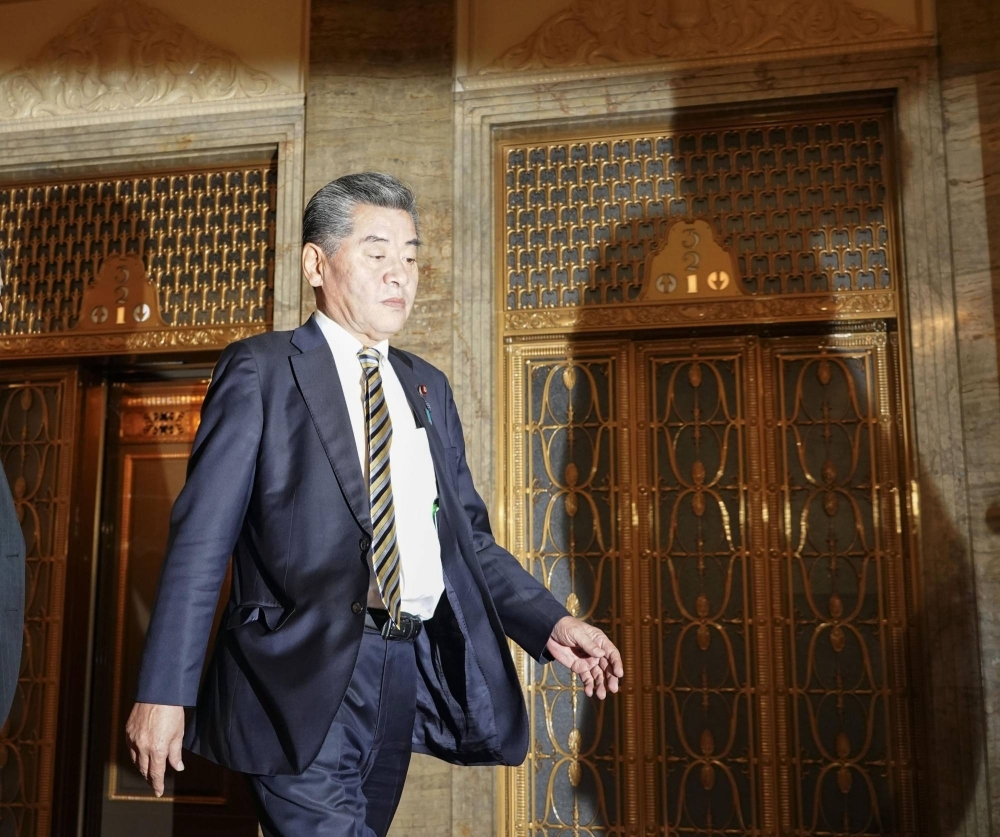State Minister of Finance Kenji Kanda submitted his resignation Monday after admitting last week that his firm had failed to pay fixed asset taxes on its land and property. Both were seized by tax authorities on four occasions between 2013 and last year after his company fell into arrears.
Prime Minister Fumio Kishida apologized Monday evening for appointing a deputy minister who had to resign soon after taking office in September.
Asked how he plans to take responsibility for the resignations — the third by a senior Cabinet official in a month — Kishida said: "I strongly believe we need to regain public trust by continuing to conduct our duties. I gravely accept my responsibility for appointing (Kanda)."
Kanda is the latest member of Kishida’s Cabinet to exit after becoming caught up in a scandal, adding to the woes of the prime minister as he heads to San Francisco for the APEC summit this week.
Kishida faces record-low popularity ratings and has about a month left in the current session of parliament, which ends Dec. 13. There are concerns within the administration that if the scandal drags on, it could affect deliberations on the fiscal 2023 supplementary budget that Kishida aims to pass by the end of the month.
Kanda, a certified tax accountant, said during parliamentary questioning Thursday that while he did not take his tax obligations lightly, he had been too busy with his parliamentary duties to oversee the tax details of his business and left them to an accounting firm.
Then during Lower House testimony Friday, Kanda apologized and said he was preparing a report on his past tax payments, including the four delinquent payments. He did not mention when the report would be released and refrained from saying whether or not he would resign before making the report.
Kanda is now the third Cabinet member to leave since Kishida reshuffled his Cabinet in September with the aim, the prime minister said, of putting the appropriate people in appropriate posts. Taro Yamada, an Upper House member, had his resignation as parliamentary vice minister for education and post-disaster reconstruction accepted by the government on Oct. 26 after Shukan Bunshun revealed he’d had an extramarital affair.
Then on Oct. 31, Lower House member Mito Kakizawa quit as state minister for justice over his recommendation to Yayoi Kimura — the mayor of Tokyo’s Koto Ward, which Kakizawa represents in parliament — that she use paid YouTube advertising, a violation of the election law. The case is being investigated by Tokyo prosecutors.
The loss of another Cabinet member comes at a time when Kishida's poll numbers are the lowest they’ve been since he took office in October 2021. A Sankei Shimbun poll conducted over the weekend showed his Cabinet support rate was just 27.8%, and it had a record-high 68.8% disapproval rate.
Speculation continues as to whether Kishida will call a snap election later this year or next year, well before his term as president of the ruling Liberal Democrat Party ends in September, in the hope of securing an electoral mandate that would shore up support for the party and his re-election as party president, which under an LDP-led government would see him continue as prime minister.
The next Lower House election does not have to be held until October 2025, but the prime minister has the authority to dissolve parliament and hold a snap election at any time.
culled from Japan Times



